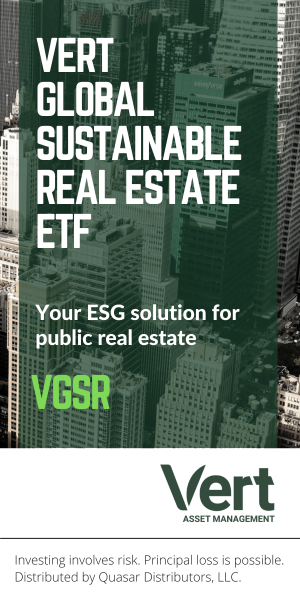Above: 801 River Street is a historic renovation/repurposing project for Housing Matters in Santa Cruz, CA – providing eight units of long-term housing for homeless residents. New Way Homes provided the pre-development funding.
 Across the nation, more churches than ever are looking at how to use their real estate assets to address the growing housing affordability crisis and their own need for financial sustainability. Thousands of congregations are having conversations, and millions of homes are possible.
Across the nation, more churches than ever are looking at how to use their real estate assets to address the growing housing affordability crisis and their own need for financial sustainability. Thousands of congregations are having conversations, and millions of homes are possible.
In California, a new model has been growing for mission-driven housing development on church-owned land. Churches (and more broadly, all faith-based organizations) often are not a fit for for-profit, investor-funded housing nor for publicly funded affordable housing. New Way Homes, a non-profit that runs an impact investment fund for affordable housing development, and Workbench, a develop-design-build firm, have partnered to create a new development model that fits the unique interests of many more churches.
The Housing Crises
There are three separate housing crises in the US today. First, there is a massive supply shortage that has made housing unaffordable to people working in many cities. The major causes of this supply crisis include restrictive zoning that leaves most housing development near job centers illegal, soaring construction costs, and a backlog of under-development due to the 2008 financial crisis.
Second, our nation’s incomplete social safety net leaves many people unable to afford any safe housing even with a healthy overall market. And third, systemic discrimination created housing segregation, wealth gaps, and other effects that live on through systemic discrimination and a developed-world leading degree of class segregation.
Of course, these three crises affect and compound each other. Housing cost increases drive increases in construction labor, making development more expensive. Rent increases drive more people into poverty and homelessness. Rapid increases in rent increase economic displacement that disproportionately change neighborhoods of color.
There is no easy solution; in fact, some solutions to any one crisis can make the others worse. Some forms of large-scale market-rate development increase gentrification and displacement. Publicly funded affordable housing in lower-income neighborhoods can add to class segregation while often not providing much relief to current residents.

Churches and New Way Homes
The Hartford Institute estimates that the US has 350,000 churches, and a majority of these organizations own property that has the capacity for housing development. Just as important as these numbers is the geographic distribution – churches are situated in neighborhoods, employment centers, and transit-rich areas. And best of all, faith-based organizations typically approach a project with a social mission of addressing need and a goal of long-term sustainability.
New Way Homes was formed in 2015 to initiate a new development model for creating affordable housing that is not reliant on the fixed amount of public funds available for development.
New Way Homes spoke with many churches about partnering, thereby avoiding the need for the earliest major cost of development – purchasing a site. While churches’ situations and goals vary widely, we found that most churches in urban areas with major housing shortages:
- Do not want to sell or transfer title to their land
- Do not want to risk losing any of their assets by borrowing or providing collateral
- Want a long-term income stream for programming, retiring debt, or handling deferred maintenance on existing buildings
- Do not want to turn over complete control of a development
- Are passionate about the social value of affordable housing, sometimes with a certain population in mind
- Do not have capital to pay for the project
- Would like to have some path to potentially fully owning the project in the long run
In response to these commonalities, New Way Homes and Workbench developed a new model for development in partnership with churches.
The First Example and a Model
In East Oakland, New Way Homes partnered in 2017 with Genesis Worship Center. Genesis, a Black-led, independent church, had secured planning permits to convert vacant classrooms into four residential units. However, their small project couldn’t fit the many requirements that come with public funding, so they were stuck on how to get the project built.
“Our entitlements were expiring when we met Sibley & the New Way Homes Team. They worked with us to change the project to 12 units. New Way Homes lent the funding to get the project approved and found a construction lender so we could build with private money. Now we operate a re-entry transitional housing program for 20 adults that is funded by Alameda County,” explained Bishop George Matthews of Genesis.
While the Genesis project is now changing the lives of those re-entering society, the organizations’ work together paved the way for a more scalable model.
Now, New Way Homes has raised a $10M pre-development fund to provide the capital for early-stage project costs. Meanwhile, Workbench’s development and design teams have become specialists in how to design and get approval for projects that can be more affordable with less or no public funding. These projects often incorporate modular construction, sustainability features to lower operating costs, co-living, and a range of other more affordable unit types and designs.
The partnership structure includes:
1) A development agreement obligates the developer to use funding from NWH to pursue permit approval for the agreed upon project concept. In return, the church agrees that if the project is approved, it will sign a nearly free land lease for over 55 years to a new project LLC. The church then becomes a limited partner of the LLC with special rights, from first position cash flows to the ability to pre-empt property management to being the only partner with the right to unilaterally buy other parties out.
2) Other sources of funding are assembled by the developer for subsequent project stages, ranging from impact investors providing equity to non-profit lenders providing debt.
3) At each stage in development, the church is engaged for feedback and approval.
4) After a number of years of operations, the project can be refinanced to pay off 3rd party equity partners at below-market rates. This equity then accrues to the church, increasing its ownership percentage over time.

Scaling Impact: From Genesis Worship Center to a Statewide Solution
The success at Genesis Worship Center is just the beginning. NWH has building permits for affordable housing at the Center of Hope church in Oakland, just received planning permits for a Peace Village project at Peace United Church in Santa Cruz and is in design or conceptual discussions with several more congregations in the region. NWH has also received tremendous interest from churches and potential funding sources throughout California and in other high-cost metropolitan areas across the US.
To meet the challenge of this growth, NWH is now working with EquityVest, an online platform that pairs crowdfunding investment opportunities with faith-based investors. For a limited period of time, anyone can potentially invest in the New Way Homes model at https://equityvest.org/. Our belief is that while the housing need is huge, the capacity of churches and individuals interested in mission-aligned investments is large enough to meet that challenge. Learn more










